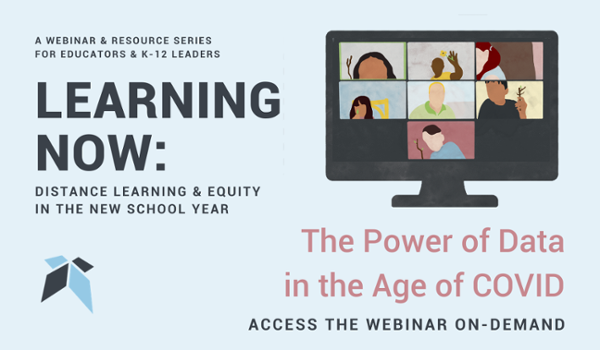when i was studying research methods as part of my doctoral degree, the running joke among our professors was that they would answer every question with “it depends.” my favorite professor would answer an either/or question with “yes.” should i use a survey to answer these research questions? or would interviews be better? “yes.”
so when school district leaders ask me if their data should drive their strategy, or if they should define their strategy (goals, priorities, actions) and then make decisions about data based on their strategy, my favorite answer is “yes.” because honestly, it’s both. here’s what i mean.
let’s say it’s time for your district to design a new strategic plan. or maybe a global-pandemic-sized wrench was tossed into the strategic priorities your board of trustees identified in 2019, and you need a refresh. if you think about this process in a linear way, then the starting point and the order of steps matter. but if you think about strategy as a cycle, or rapid cycles that repeat often, then the starting point matters less.
school systems with strong data culture drive change through targeted cycles of reflection, design, and implementation with a representative cross section of stakeholders. each cycle includes diving into current data, aligning stakeholders to make key decisions, developing a vision by using common language, and setting clear expectations for all roles. best practices in design thinking then create opportunities for all leaders (teachers, coaches and school leaders) to plan for a change in practice, build knowledge of new concepts, coach and support each other through job-embedded implementation, and reflect on what worked. then the cycle repeats.

viewing this process as a cycle makes the starting point matter less. if your district has already made some strategic decisions about where to focus improvement efforts, start with design, then implement and reflect. if, after all the change 2020 has brought to your district, you’re wondering what is working and what isn’t and need direction on where to invest your resources, engage in data-based reflection first.
when we work with school districts to help them improve their data systems, we lean on six essential elements of strong data culture. viewing strategic planning as a cyclical, rather than a linear process, leads to more alignment between your data and your priorities and means that your data culture will be more responsive, supporting timely, in the moment iteration based on how the needs of your district evolve.
looking for more discussion on this topic? join us for a webinar on october 29th at 11 am et, 8 am pt on the power of data in the age of covid. we’ll be discussing how to use a variety of new and existing data sources to inform a new approach to teaching and learning as well as innovative approaches to data collection. participants will learn how to develop the practice of using data to continuously inform improvement at the individual, team, and organizational levels. see you there!
